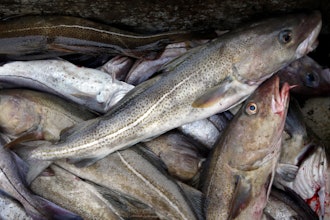
EAST LANSING, Mich. — From north to south along West Michigan, sandy soils border the coast between Lake Michigan and the inland part of the state. Found in this region is Traverse City, known as the “Cherry Capital of the World.”
Michigan produces about 70% of the country’s tart cherries, and from that, Traverse City produces roughly 40%. Cherry trees prefer sandy soils on rolling hills to grow. Tart cherries do best when they have multiple cold winter months to prepare for moderate summers.
Michigan produced about 133 million pounds of tart cherries last year, according to the U.S. Department of Agriculture National Agricultural Statistics Service. This was down from about 180 million pounds in 2022 and 202 million pounds in 2018Part of the reason for such varied production totals is due to changing climate patterns, said Raul Gomez, operations manager of Wunsch Farms based in Traverse City. The farm is a sixth-generation cherry and apple farm located on Old Mission Peninsula.
The atypically warm winter Michigan experienced this year — with record-high temperatures in some parts of the state during February — has caused concern that fruit trees will bud early and crops will be damaged. Gomez said the trees on Wunsch Farms have experienced enough cool temperatures to prevent early budding from occurring, but noted he knows other growers in the state whose crops have already been impacted due to the sporadic temperature changes.
As Wunsch Farm transitions into the spring and summer months, Gomez said he’s starting to focus on how to manage water during the season.
To conserve water and keep nutrients within the soil, Gomez said he’s trying to find ways to avert water from draining through the sandy soil the farm’s cherry trees are grown in, while simultaneously being prepared for extended periods without precipitation.






















